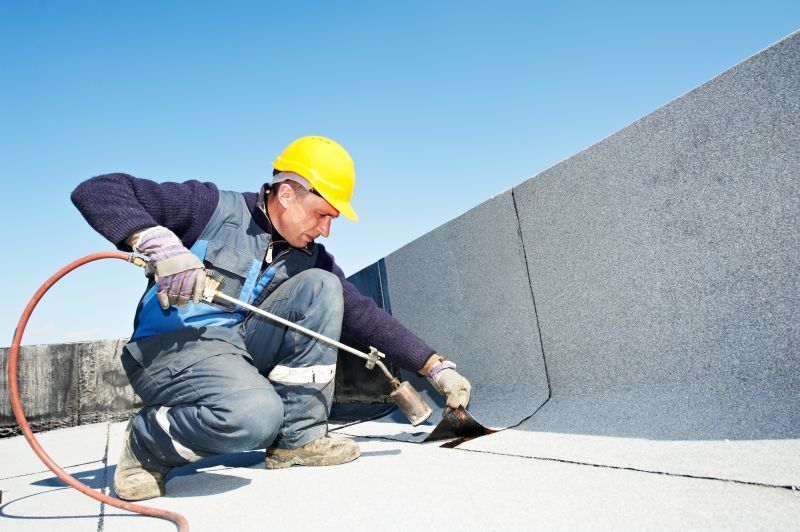Top Waterproofing Products for Long-Lasting Protection
Discover the leading waterproofing solutions designed to safeguard structures and prevent water damage effectively.
 Waterproofing products are essential solutions for protecting structures from water intrusion and damage. They are used in various applications, including basements, roofs, foundations, and walls, to create a barrier against moisture and water infiltration. Selecting the right waterproofing materials depends on factors such as surface type, exposure conditions, and the level of water resistance needed. Proper application and maintenance of these products can significantly extend the lifespan of buildings and prevent costly repairs caused by water damage.
Waterproofing products are essential solutions for protecting structures from water intrusion and damage. They are used in various applications, including basements, roofs, foundations, and walls, to create a barrier against moisture and water infiltration. Selecting the right waterproofing materials depends on factors such as surface type, exposure conditions, and the level of water resistance needed. Proper application and maintenance of these products can significantly extend the lifespan of buildings and prevent costly repairs caused by water damage.
Top Overall Option
Liquid Waterproofing Membrane
A versatile liquid membrane offers a seamless, flexible coating that can be applied to various surfaces. It provides a durable barrier against water infiltration and is suitable for roofs, foundations, and balconies. Easy to apply with brushes, rollers, or sprayers, it adapts well to complex shapes and joints, making it a popular choice for many waterproofing projects.
Types of Products For Waterproofings
Liquid Waterproofing Membranes
Fluid coatings that form a continuous barrier when applied, ideal for roofs and decks.
Sheet Membranes
Pre-formed sheets made of rubber, bitumen, or plastic used in foundation and basement waterproofing.
Cementitious Coatings
Ready-mixed cement-based products suitable for concrete surfaces, offering ease of application.
Bituminous Coatings
Asphalt-based coatings providing strong water resistance, often used on roofs and foundations.
Polyurethane Coatings
Flexible and elastic coatings ideal for surfaces subject to movement or cracking.
Sealants and Caulks
Flexible compounds used to seal joints, cracks, and gaps against water intrusion.
Bitumen Sheets
Durable sheets used mainly for roof and foundation waterproofing applications.
Fluid-Applied Coatings
Spray or brush-on coatings that form a waterproof layer on various surfaces.
Polyethylene and Plastic Sheets
Thin plastic sheets used as barriers in below-grade waterproofing systems.
Crystalline Waterproofing
Chemical treatments that penetrate concrete to enhance its water resistance over time.
Popular Choices
Widely used for their versatility and seamless application in various waterproofing projects.
Commonly selected for their proven water resistance in roofing and foundation work.
Popular in basement waterproofing due to their durability and ease of installation.
Frequently used for sealing joints and cracks to prevent water seepage.
Chosen for their elasticity and ability to accommodate surface movement.
Popular for their compatibility with concrete structures and straightforward application.
Valued for long-term water resistance in concrete structures through chemical penetration.
Favored for their robustness in roofing and below-grade applications.
Chosen for their ability to conform to complex surfaces and provide seamless coverage.
Different types of waterproofing products are formulated to suit specific needs. Liquid membranes, for example, can be applied as coatings to create seamless barriers on surfaces. Sheet membranes are often used in foundation waterproofing, providing durable and flexible protection. Sealants and caulks are suitable for small cracks and joints, preventing water seepage through gaps. Additionally, cementitious coatings are popular for their ease of application and compatibility with concrete surfaces. When choosing waterproofing products, it is important to consider their compatibility with existing materials, ease of application, and durability under local weather conditions.
In the context of Peru, Indiana, where seasonal variations can lead to moisture challenges, selecting effective waterproofing solutions is particularly important. Properly applied waterproofing can help prevent issues such as mold growth, structural deterioration, and interior water damage. Consulting with local professionals and understanding the specific requirements of your project can lead to better long-term results. Whether for residential, commercial, or industrial purposes, a variety of products are available to meet different waterproofing needs, ensuring structures remain dry and protected over time.
Key Buying Considerations
- Determine the specific area and surface type to select the most suitable waterproofing product.
- Consider the level of water exposure and whether the application is for interior or exterior surfaces.
- Evaluate the compatibility of the product with existing materials and surfaces.
- Assess ease of application, including whether professional help is needed or if DIY is feasible.
- Check the durability and expected lifespan of the waterproofing solution under local weather conditions.
- Review drying and curing times to plan installation schedules effectively.
- Look into the flexibility and movement accommodation of the product, especially for surfaces prone to cracking.
- Examine the product's resistance to UV rays, chemicals, and temperature fluctuations if applicable.
- Consider the maintenance requirements and ease of reapplication or repairs.
- Verify the product's compliance with local building codes and standards.
- Account for environmental conditions such as humidity, rainfall, and temperature extremes in Peru, Indiana.
- Estimate the budget and compare the cost-effectiveness of different options.
- Research manufacturer reputation and customer reviews for reliability and performance insights.
- Ensure proper surface preparation before application for optimal results.
- Plan for safety measures during application, especially with chemical-based products.
